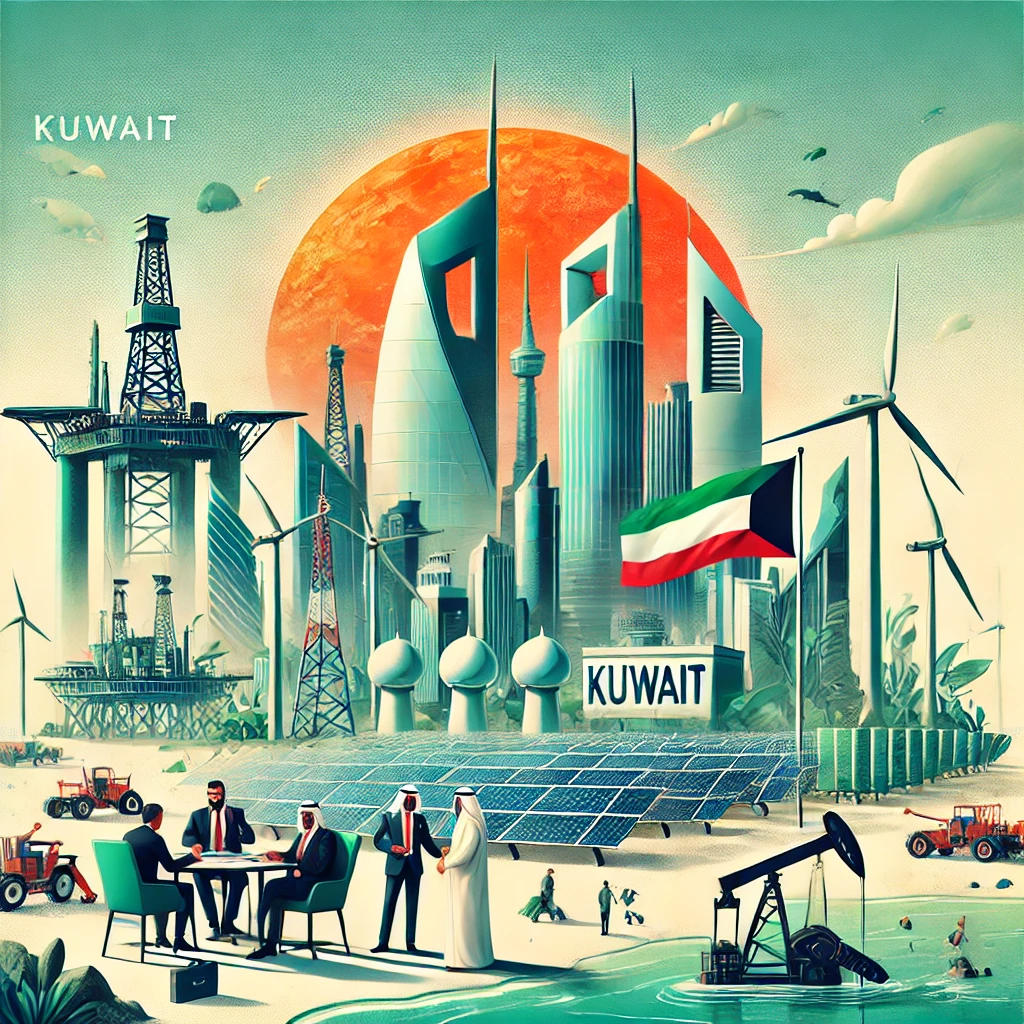UN Expert Praises Kuwait’s Fiscal Innovation and Humanitarian Leadership
Kuwait’s commitment to humanitarian aid and development assistance is deeply rooted in its national identity.

- Country:
- Kuwait
Kuwait has achieved what few nations have—a functioning social contract without relying on domestic taxation—and continues to stand out as a global leader in fiscal innovation, humanitarian finance, and South-South cooperation, according to Attiya Waris, the UN Independent Expert on Foreign Debt and Human Rights.
Concluding her official visit to Kuwait, Waris commended the country’s unique fiscal framework, which combines wealth management, institutional strength, and social solidarity to uphold both economic stability and human rights principles.
“As a committed leader in solidarity and humanitarian financial assistance, I commend Kuwait’s dedication to South-South and global cooperation,” Waris said in a statement issued at the end of her visit.
A Legacy of International Cooperation
Kuwait’s commitment to humanitarian aid and development assistance is deeply rooted in its national identity. Just months after gaining independence in 1961, Kuwait established the Kuwait Fund for Arab Economic Development (KFAED)—the world’s oldest development fund.
The fund’s early creation reflected Kuwait’s recognition of international cooperation as a core state responsibility, in line with the human rights principle of shared prosperity. More than six decades later, the KFAED remains a cornerstone of Kuwait’s foreign policy, having financed over 1,000 development projects in 100 countries across Africa, Asia, and the Middle East.
“By founding the oldest development fund in the world, Kuwait set an example of how newly independent nations can contribute to the realization of global human rights through solidarity,” Waris noted.
Institutional Innovation and Fiscal Sophistication
The UN expert highlighted Kuwait’s advanced institutional architecture, noting that the country has consistently been among the first in the Gulf region to adopt and implement international financial standards.
Key achievements include:
-
Establishing the Capital Markets Authority, enhancing governance and regulatory oversight.
-
Creating one of the world’s most respected sovereign wealth funds, the Kuwait Investment Authority (KIA), which manages the nation’s long-term financial reserves.
-
Active participation in the Accounting and Auditing Organization for Islamic Financial Institutions (AAOIFI), shaping Islamic finance principles globally.
This institutional depth, Waris said, demonstrates Kuwait’s capacity for rapid adaptation to evolving global financial frameworks and its commitment to responsible fiscal management.
Aligning Fiscal Strategy with Human Rights and the SDGs
Waris emphasized that Kuwait’s national development plan aligns closely with the United Nations 2030 Agenda for Sustainable Development, reflecting a deliberate effort to diversify the economy beyond oil, enhance citizen well-being, and preserve national values.
She noted that Kuwait’s approach integrates fiscal policy with human rights objectives, guided by principles of accountability, transparency, responsibility, efficiency, and fairness. This framework ensures that economic planning not only delivers growth but also promotes social equity and justice.
“Kuwait’s efforts to ensure the financial realization of human rights through fiscal legitimacy are commendable,” Waris said. “The country demonstrates how economic governance can be both ethical and effective.”
The Zakat System: A Model of Faith-Based Fiscal Responsibility
A distinctive feature of Kuwait’s fiscal landscape is its institutionalized Zakat system, which blends spiritual obligation with structured governance. The system, managed through the Zakat House, channels funds toward both domestic welfare programs and international humanitarian aid.
Waris praised the Zakat system as an exemplary model of faith-based fiscal inclusion, helping to reduce poverty, strengthen social cohesion, and support vulnerable populations.
“By combining spiritual values with an institutionalized mechanism, Kuwait’s Zakat system plays a significant role in promoting human rights and social solidarity,” she said.
The integration of Zakat within Kuwait’s fiscal framework demonstrates how religious principles can complement modern financial governance to create sustainable and equitable outcomes.
Strengthening Transparency and Global Financial Cooperation
While commending Kuwait’s fiscal achievements, the UN expert also urged authorities to further enhance financial transparency, particularly in combating money laundering and illicit financial flows.
She encouraged the government to deepen cross-border cooperation in financial investigations and to continue playing a leading role in building a fair and inclusive global fiscal architecture.
“Kuwait’s tradition of openness and collaboration positions it as a key partner in shaping a global fiscal framework that upholds accountability and justice,” Waris said.
Looking Ahead: Kuwait’s Role in Global Fiscal Governance
Waris’s visit underscores Kuwait’s growing influence in international financial diplomacy. As a nation that combines economic strength, humanitarian generosity, and policy innovation, Kuwait offers a unique model for sustainable development and fiscal responsibility.
Her full report on Kuwait’s fiscal system and human rights commitments will be presented to the UN Human Rights Council at its 61st session in March 2026, where it is expected to provide insights for other nations seeking to align fiscal policy with social and ethical goals.
A Vision of Fiscal Justice Rooted in Solidarity
Kuwait’s approach, Waris concluded, reflects a vision of fiscal justice rooted in both national values and global solidarity. By linking financial systems with human rights principles and development cooperation, Kuwait demonstrates how economic governance can serve people—not just markets.
“Kuwait’s example shows that prosperity and justice are not mutually exclusive,” Waris said. “Its fiscal model combines faith, fairness, and forward-thinking—a powerful foundation for human-centered development in the 21st century.”
ALSO READ
Supreme Court to Hear Mahua Moitra's Plea on Financial Transparency
CARS24: Revolutionizing Transparency in India's Used Car Market
Air India Crash Investigation Under Scrutiny Amidst Calls for Transparency
The Electoral Roll Saga: Transparency and Challenges in Bihar's Special Revision
Minister Insists on Transparency in Air India Crash Probe Amid Pilot's Family Concerns










